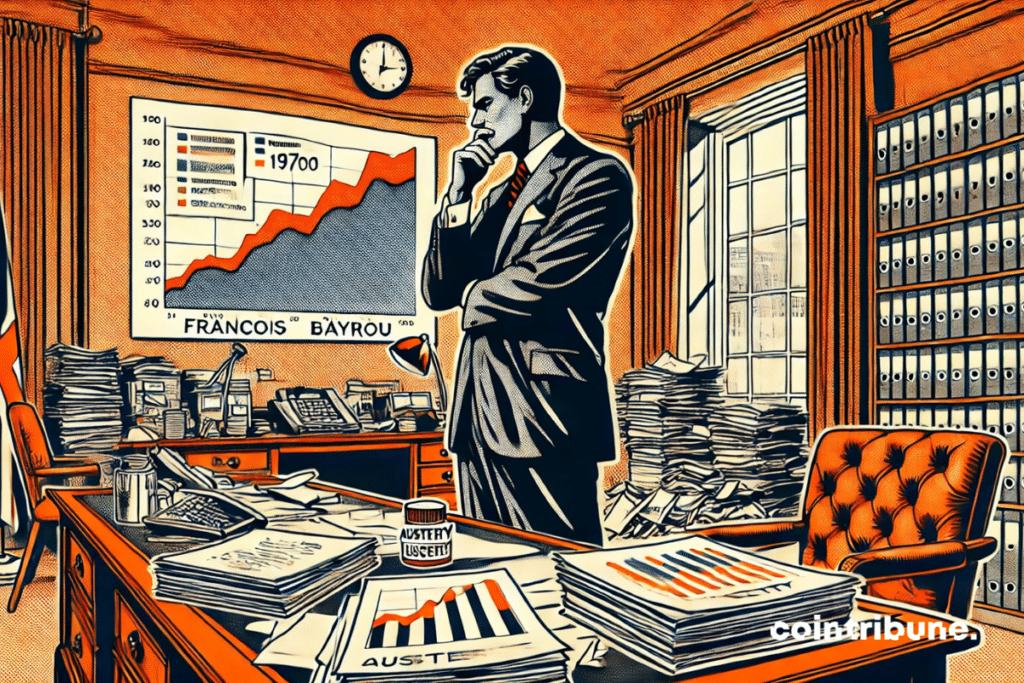François Bayrou Unveils Ambitious Economic Overhaul: Can France Rally Behind His Vision?
As of April 17, 2025, centrist political leader François Bayrou has proposed sweeping economic reforms aimed at revitalizing France’s financial landscape. The plan includes structural adjustments to taxation, labor markets, and public spending—measures that could significantly impact France’s debt-to-GDP ratio and long-term competitiveness. Analysts are divided on whether the reforms will gain traction amid political fragmentation and public skepticism. The proposal arrives as the EU grapples with sluggish growth, making Bayrou’s plan a potential litmus test for reform viability in Western economies. Market observers suggest implementation risks remain high given France’s history of resistance to neoliberal policies.

A Indebted France: The Race Against Time to Avoid Disaster
France is going throughthat is becoming increasingly unsustainable, while its Central Bank reports a loss of €17.7 billion in 2024. Faced with these uncertainties, some French people are beginning to take an interest in financial alternatives like bitcoin, seen by many as a hedge against the instability of fiat currencies. François Bayrou said it clearly during the April 15 conference: the situation of public finances is irreversible if no action is taken. Indeed,, an amount equivalent to the annual defense and education expenditures, excluding pensions.
And this is only the beginning. If nothing changes,.
Faced with this threat, the government is tackling, well above the 3% required by the European Union. The goal is to reduce this deficit to 4.6% by 2025. But to achieve this, spending cuts are inevitable.
Bayrou’s action plan includes, notably tax benefits for retirees and sick leave. These measures are likely to cause waves, especially among the most vulnerable voters.
Work at the Center of the Strategy: But at What Cost?
One of the main solutions put forward by the Prime Minister is clear: work more. France suffers from a labor force participation rate that is too low compared to its European neighbors. Bayrou stated:
We do not work enough.
If productivity per capita were at the level of Germany, France would no longer have a deficit. But how to encourage thisand where sick leaves have exploded since the Covid-19 crisis?
To achieve this, the government proposes, including simplifying labor law and restructuring the social model. The Minister of Labor, Astrid Panosyan-Bouvet, mentioned the need toand strengthen professional training.
But this desire to increase the amount of work raises questions about the balance between economic performance and social justice. Because who will really accept to work more without seeing real benefits?
When I hear Bayrou’s remarks, this guy is crazy! It’s an insult… If they want a civil war, they will end up having it by keeping on with these statements!
Political Tensions and Parliamentary Uncertainty: Bayrou on the Razor’s Edge
Despite the urgency of the situation, the Prime Minister must. After the legislative elections lost by Macron last summer, the National Assembly is dominated by divided political blocs. Bayrou risks facingif the opposition opposes his public spending reduction project too firmly.
The National Rally of Marine Le Pen has already indicated that it would not hesitate to overthrow the government if the budget weighs too heavily on the working classes. Likewise,to the new proposals, especially those concerning cuts in social spending.
Who is Bayrou asking to make efforts? The workers, health personnel, teachers? The real idlers are the richest in our country!
: to succeed in imposing the reforms while avoiding a political crisis.
The upcoming debates will thus be decisive. The government has embarked on, but the outcome of this battle will largely depend on the position of the opposition and the unions. If the latter reject the reforms, the outcome could be catastrophic, leading to an even deeper political crisis.
Key Points
- €40 billion must be saved by 2026 to reduce the budget deficit;
- France’s budget deficit reaches 5.8% of GDP, well above the 3% required by the EU;
- François Bayrou relies on work as a solution to fill the deficit, but social resistance is strong;
- Political tensions are growing, with potential motions of no confidence;
- The government will have to find a compromise between reforms and social acceptance to avoid a crisis.
France, which risks a historic recession, is at a crossroads. While fiscal and social reforms are necessary to avoid a budgetary disaster, they risk causing political deadlock. François Bayrou is on the razor’s edge, between necessary cuts and popular reactions. Time is running out, and the political battle is just beginning. The country’s future will depend on the government’s ability to pass its reforms.
Maximize your Cointribune experience with our "Read to Earn" program! For every article you read, earn points and access exclusive rewards. Sign up now and start earning benefits.


